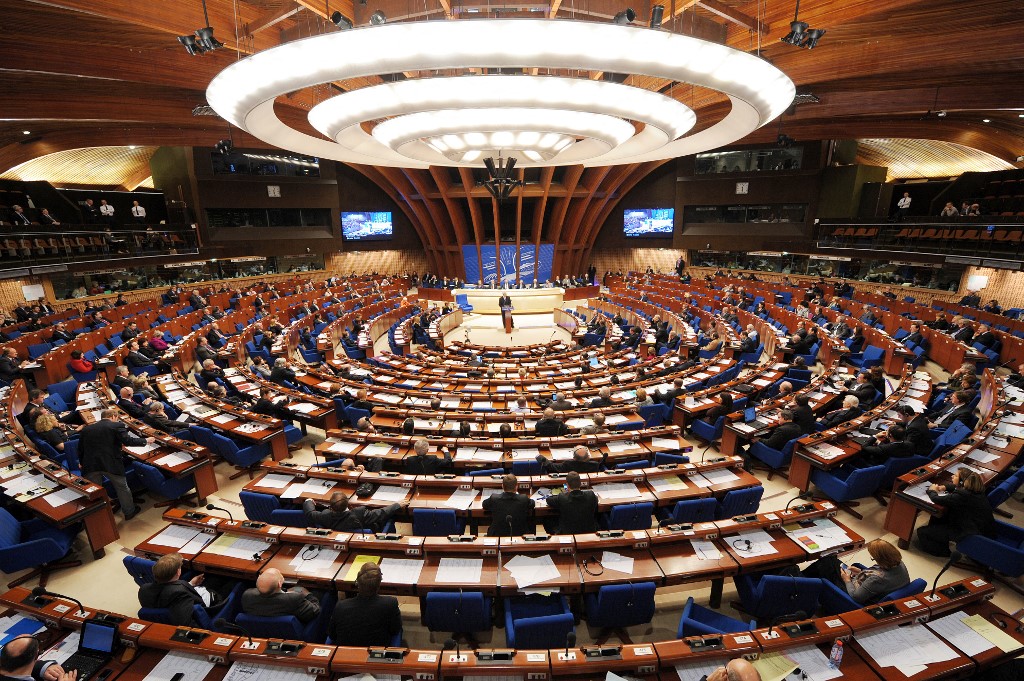The Council of Europe’s (CoE) Committee of Ministers, in its quarterly human rights meeting March 12-14, will discuss possible sanctions against Turkey over its non-compliance with European Court of Human Rights (ECtHR) rulings in the cases of jailed Kurdish leader Selahattin Demirtaş and businessman Osman Kavala.
According to Turkish media reports, the committee will consider all potential sanctions it might adopt if Turkey persists in rejecting compliance with ECtHR rulings for the immediate release of Demirtaş and Kavala, including an infringement procedure.
Demirtaş, former co-chairperson of the pro-Kurdish Peoples’ Democratic Party (HDP) and also a human rights lawyer, has been behind bars since November 2016 on politically motivated charges.
Kavala, 66, faced charges that have ranged from espionage and financing protests in 2013 to taking part in a failed coup against President Recep Tayyip Erdoğan in 2016. He was arrested in October 2017 and sentenced to life in 2022 for allegedly trying to topple Erdoğan’s government.
In its 2020 ruling about Demirtaş, the ECtHR said that his “unjustified” detention pursued the ulterior motive of stifling pluralism and limiting freedom of political debate in Turkey.
In the same year the court said in another ruling that Kavala’s “unjustified and extended” detention had the ultimate purpose of reducing him to silence.
The committee launched an infringement proceeding against Turkey over its treatment of Kavala on February 2, 2022. This could potentially see Ankara expelled from the continent’s leading human rights organization.
Under this proceeding, the ECtHR would establish whether Turkey had violated the European Convention on Human Rights (ECHR). If the Strasbourg court ruled that Turkey has not fulfilled its obligations under the ECHR, then the Committee of Ministers would decide on the sanctions to be imposed on the country.
If Turkey did not release Kavala by January 1, 2024, the Parliamentary Assembly of the Council of Europe (PACE) would have the authority to challenge the credentials of the Turkish delegation in its first session.
Following this decision, if efforts to secure the release of Kavala proved unsuccessful despite engaging with Turkish authorities, “anyone, including police officers, prosecutors, judges, prison officials, or others contributing to the illegal and arbitrary deprivation of freedom of Osman Kavala and other political prisoners in Turkey” would face prosecution in European countries for their actions.
The Turkish delegation would also be deprived of their voting rights in PACE during the 2024 Winter Session.
However, such sanctions did not make it to the agenda of PACE, which convened in January.
Therefore, the stance that the Committee of Ministers will adopt in the next two days on this matter is crucial not only for those whose rights have been violated but also for European institutions whose own reputation has been compromised, Turkish media said.
Demirtaş’s lawyers, Benan Molu, Ramazan Demir and Mahsuni Karaman, have made arguments to the court, including emphasizing that the ongoing detention of Demirtaş is a violation of Article 46/4 of the convention, and continuing to call on the secretary-general of the CoE, member states and international human rights organizations to raise awareness about the case and the judicial harassment faced by Demirtaş.
Kavala’s lawyers, Professor Başak Çalı and Professor Philip Leach, also requested that the court start the complementary joint procedure, the main purpose of which is to bring a member state, through constructive dialogue and cooperation, into compliance with the obligations and principles of the CoE and avoid imposing sanctions.
The CoE, the parliamentary assembly and the secretary-general should all participate in the procedure that would include a number of concrete and well-defined steps, with each step having a strict timeframe fixed by the common agreement of the three parties.
Decisions taken by the Committee of Ministers during this week’s meeting will be published on the CoE website on March 15.
